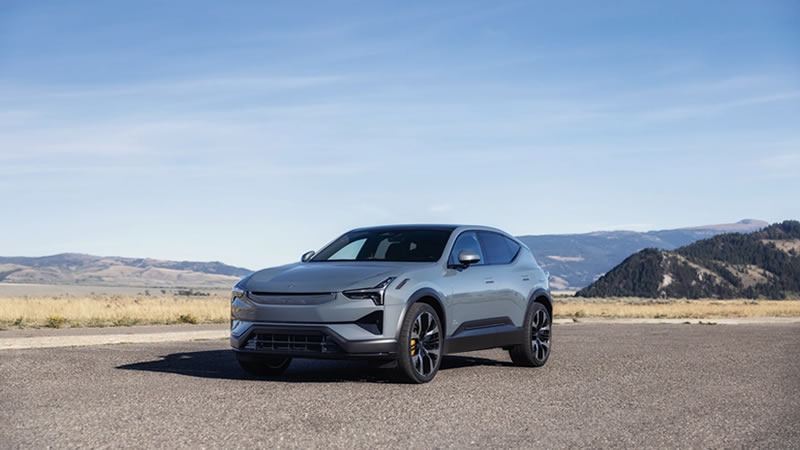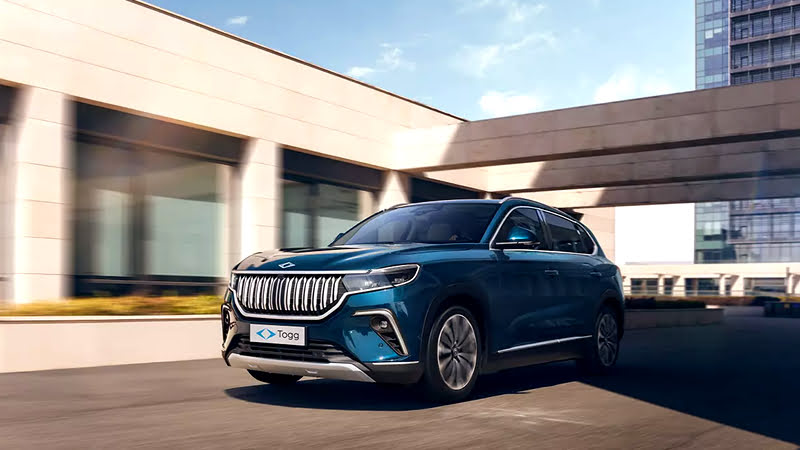From Vehicle Ownership to Mobility - The Rise of Car Rental Services

In recent years, the automotive industry has witnessed a rapid shift from the concept of vehicle ownership to mobility. This transformation in consumer behavior challenges traditional car-buying models while highlighting car rental and sharing services. Supported by economic and environmental factors, this change is positioning mobility services as the transportation model of the future.
For decades, vehicle ownership was regarded as a symbol of personal freedom. However, today’s changing living conditions and cost pressures are driving individuals toward more flexible and economical solutions. The high costs of owning a vehicle—including purchase price, maintenance, insurance, and fuel—have become unsustainable for many. Particularly in urban areas, challenges like parking and heavy traffic have led individuals to question the advantages of car ownership.
At this point, car rental services stand out as an attractive alternative, offering flexibility, economic benefits, and environmental awareness.
The car rental sector is expanding in parallel with technological advancements and evolving consumer expectations. In addition to traditional short-term car rentals, models such as long-term and fleet rentals have become appealing options for both individuals and businesses.
• Short-Term Rentals: A convenient solution for vacations or daily needs.
• Long-Term Rentals: An economical alternative to car ownership, particularly for urban dwellers.
• Fleet Rentals: Enables companies to optimize vehicle costs and increase operational efficiency.
Technology plays a significant role in the growing popularity of car rental services. Mobile apps and online platforms enhance user experience by enabling quick and easy reservations.
The environmental and economic impacts of car rental services highlight why this model is seen as one of the transportation solutions of the future.
• Environmental Benefits: Car-sharing and rental services reduce individual car ownership rates, significantly lowering carbon emissions. Fewer vehicles being produced translates to a smaller environmental footprint.
• Economic Advantages: Using rental services instead of owning a car significantly reduces costs, particularly for individuals who do not travel frequently.
The car rental sector continues to grow with innovative solutions targeting not just individuals but also businesses. For example, the rental of electric vehicles has garnered significant interest among environmentally conscious users. Additionally, subscription-based models allow users to rent cars according to their diverse needs.
Autonomous vehicles are expected to play a major role in the future of mobility services. With the advancement of autonomous driving technology, car rental services could offer users an entirely new experience. For instance, rented autonomous vehicles could arrive at the user’s doorstep at a scheduled time and operate without a driver.
Türkiye stands out as a rapidly growing market for car rental services. Demand for these services is steadily increasing, particularly in major cities and tourist destinations. The key drivers behind this growth include:
• Tourism Potential: Many tourists visiting Türkiye prefer car rental services to enjoy a more flexible and comfortable vacation.
• Domestic Consumer Demand: Local users seeking flexibility in urban transportation are turning to car rental services.
The car rental sector redefines user experiences by offering more sustainable, economical, and flexible solutions compared to individual car ownership. In the hustle and bustle of city life, the convenience provided by mobility services signals continued growth for the car rental sector in the future.
For those looking to explore mobility, car rental emerges as a solution offering both economic and environmental benefits. Being a part of this change is a significant step toward enhancing individual quality of life and leaving a more sustainable world for future generations.
Why Are We Moving Away from Vehicle Ownership?
For decades, vehicle ownership was regarded as a symbol of personal freedom. However, today’s changing living conditions and cost pressures are driving individuals toward more flexible and economical solutions. The high costs of owning a vehicle—including purchase price, maintenance, insurance, and fuel—have become unsustainable for many. Particularly in urban areas, challenges like parking and heavy traffic have led individuals to question the advantages of car ownership.
At this point, car rental services stand out as an attractive alternative, offering flexibility, economic benefits, and environmental awareness.
The Rise of Car Rental Services
The car rental sector is expanding in parallel with technological advancements and evolving consumer expectations. In addition to traditional short-term car rentals, models such as long-term and fleet rentals have become appealing options for both individuals and businesses.
• Short-Term Rentals: A convenient solution for vacations or daily needs.
• Long-Term Rentals: An economical alternative to car ownership, particularly for urban dwellers.
• Fleet Rentals: Enables companies to optimize vehicle costs and increase operational efficiency.
Technology plays a significant role in the growing popularity of car rental services. Mobile apps and online platforms enhance user experience by enabling quick and easy reservations.
Environmental and Economic Impacts
The environmental and economic impacts of car rental services highlight why this model is seen as one of the transportation solutions of the future.
• Environmental Benefits: Car-sharing and rental services reduce individual car ownership rates, significantly lowering carbon emissions. Fewer vehicles being produced translates to a smaller environmental footprint.
• Economic Advantages: Using rental services instead of owning a car significantly reduces costs, particularly for individuals who do not travel frequently.
The Future of Mobility Services
The car rental sector continues to grow with innovative solutions targeting not just individuals but also businesses. For example, the rental of electric vehicles has garnered significant interest among environmentally conscious users. Additionally, subscription-based models allow users to rent cars according to their diverse needs.
Autonomous vehicles are expected to play a major role in the future of mobility services. With the advancement of autonomous driving technology, car rental services could offer users an entirely new experience. For instance, rented autonomous vehicles could arrive at the user’s doorstep at a scheduled time and operate without a driver.
The Rise of Car Rental Services in Türkiye
Türkiye stands out as a rapidly growing market for car rental services. Demand for these services is steadily increasing, particularly in major cities and tourist destinations. The key drivers behind this growth include:
• Tourism Potential: Many tourists visiting Türkiye prefer car rental services to enjoy a more flexible and comfortable vacation.
• Domestic Consumer Demand: Local users seeking flexibility in urban transportation are turning to car rental services.
How Are Mobility Services Changing Our Lives?
The car rental sector redefines user experiences by offering more sustainable, economical, and flexible solutions compared to individual car ownership. In the hustle and bustle of city life, the convenience provided by mobility services signals continued growth for the car rental sector in the future.
For those looking to explore mobility, car rental emerges as a solution offering both economic and environmental benefits. Being a part of this change is a significant step toward enhancing individual quality of life and leaving a more sustainable world for future generations.
























































































